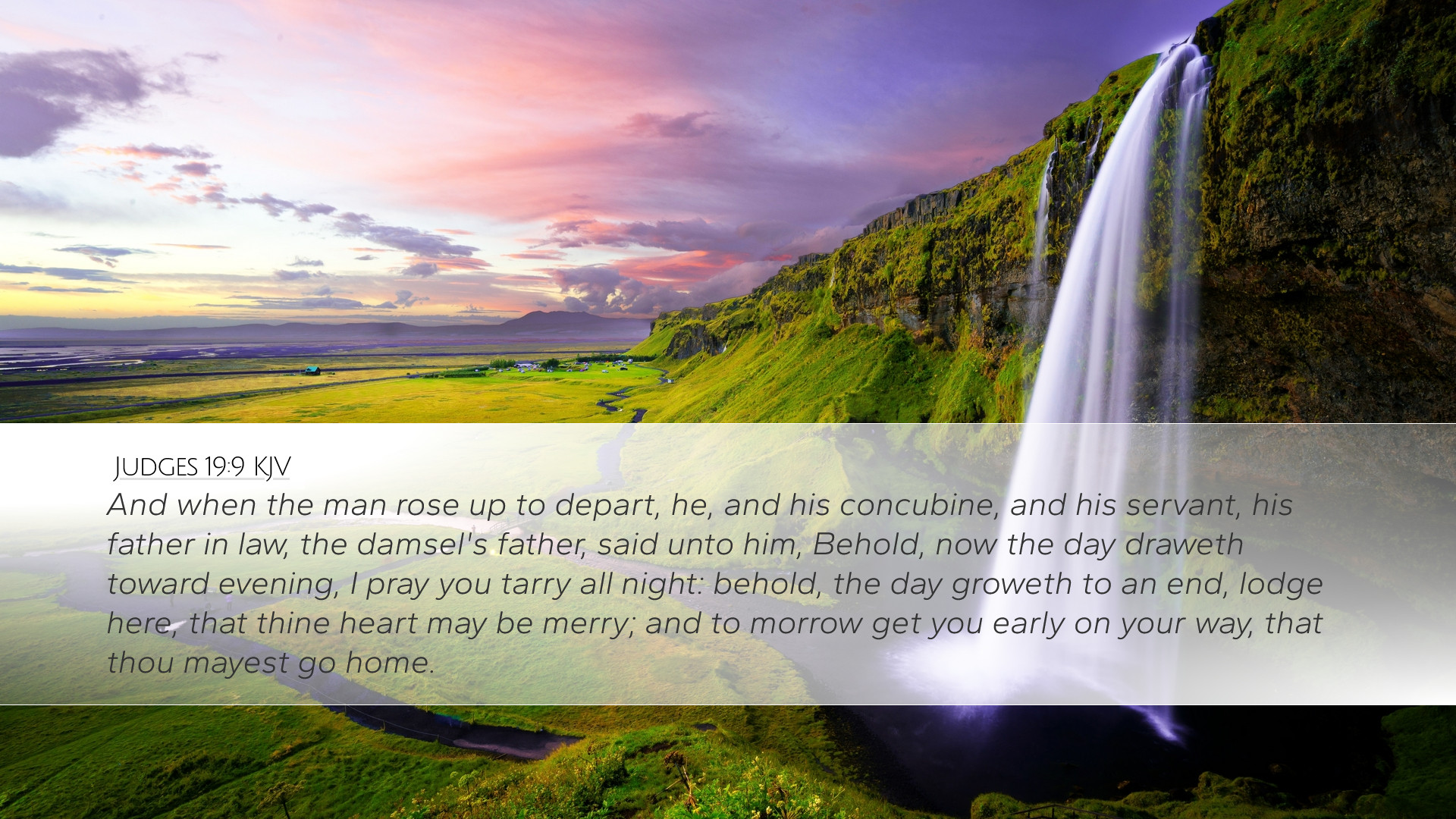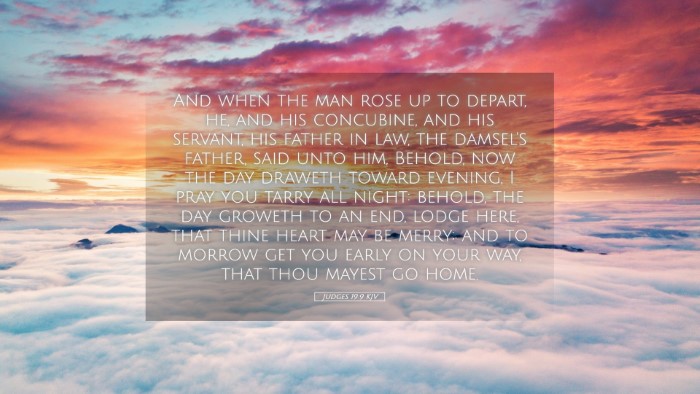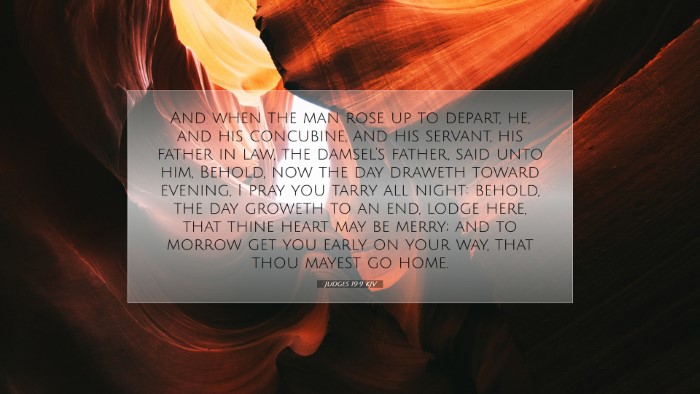Bible Commentary on Judges 19:9
Judges 19:9 encapsulates a pivotal moment within the larger narrative of the Book of Judges, reflecting on themes of morality, social decay, and the consequences of spiritual disarray in Israel. This commentary synthesizes insights from several esteemed public domain sources, including Matthew Henry, Albert Barnes, and Adam Clarke, offering a comprehensive examination of the verse.
Verse Text
"And when the man arose to depart, he, and his concubine, and his servant, his father-in-law, the damsel's father, said unto him, Behold, now the day draweth toward evening; I pray you tarry all night: behold, the day is now spent; lodge here, that thine heart may be merry; and tomorrow get you early on your way, that thou mayest go home."
Contextual Analysis
This verse occurs in a narrative that illustrates the moral decline in Israel during the time of the judges. The mention of a concubine signifies a departure from the ideal of marriage and highlights societal degradation. Adam Clarke notes that this relationship was not merely one of affection but often a reflection of social status and power imbalance.
Historical Context
The Book of Judges documents a tumultuous period in Israel's history, marked by cycles of apostasy, oppression, and deliverance. Matthew Henry argues that the return to societal norms following these cycles often led to chaos, as sin had permeated the fabric of Israelite culture.
Character Analysis
The central characters in this verse—the man, his concubine, and his father-in-law—are portrayed in a complex light. The man, who remains unnamed, represents the fractured nature of familial and societal bonds. The invitation from the father-in-law to remain for the night not only demonstrates hospitality but also highlights a desperate attempt to preserve the last vestiges of community and care within a crumbling moral landscape.
Theological Insights
Judges 19:9 raises numerous theological questions concerning divine justice, mercy, and human responsibility. Barnes contemplates the implications of social hospitality, emphasizing its significance in a time when law and order were often absent. The reluctance of the man to accept the father-in-law's hospitality illustrates the tension between self-interest and communal obligations.
Moral Decay
The broader narrative serves as a cautionary tale warning against moral decay. Clarke posits that the text reflects the consequences of abandoning God's covenant. The urgency expressed in "the day draweth toward evening" serves as a metaphor for both physical safety and spiritual urgency, urging the reader to consider the implications of remaining in a state of sin.
Application for Today
Pastors and theologians may reflect upon Judges 19:9 as a commentary on modern societal issues, such as the breakdown of family structures and community support. The significance of hospitality in biblical culture can be a guiding principle for contemporary ministry, encouraging an outreach that fosters genuine relationships and nurtures moral integrity.
The Role of Hospitality
Hospitality is a recurring theme throughout Scripture, serving as a practical expression of love and community. The insistence of the father-in-law to keep his guest for the night recalls overtones from earlier biblical accounts, illustrating that during turbulent times, such gestures are vital for societal preservation.
Contrast with Later Events
The hospitality displayed here contrasts sharply with the events that follow in the narrative, revealing how quickly societal norms can disintegrate. Henry emphasizes that while the offer of rest is made, the darkness of what is to come looms over the latter segments of the chapter, a stark reminder of human depravity.
Conclusions
Judges 19:9 serves as a microcosm of the challenges faced in the ancient near East, echoing timeless truths still applicable in today’s context. It engages the reader in a multifaceted exploration of relationship dynamics, societal norms, and the urgent need for reflection on both personal and communal ethics. For all audiences—pastors, students, theologians, and scholars—this verse stands as a challenge to examine our own societal structures, the narratives we embrace, and the darkness we often overlook.
Final Reflection
As we engage with this text, let us take heed of the lessons imparted. Let us promote protection and community, reflect on our interpersonal relationships, and strive for moral clarity amidst a world that mirrors the chaos of the Judges era.


